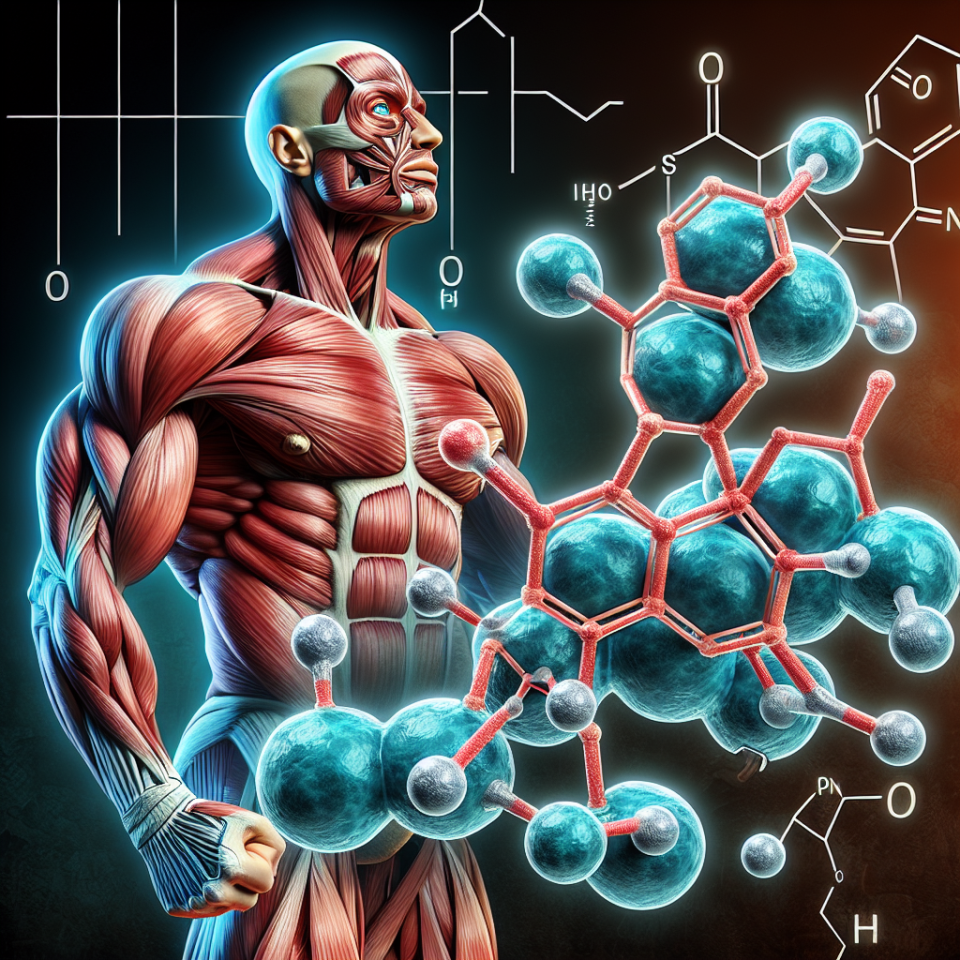-
Table of Contents
Testosterone Phenylpropionate and Its Influence on Muscle Recovery
Testosterone is a hormone that plays a crucial role in the development and maintenance of male characteristics. It is also essential for muscle growth and recovery in both men and women. Testosterone phenylpropionate is a synthetic form of testosterone that has gained popularity in the world of sports and bodybuilding due to its ability to enhance muscle recovery. In this article, we will explore the pharmacokinetics and pharmacodynamics of testosterone phenylpropionate and its influence on muscle recovery.
The Pharmacokinetics of Testosterone Phenylpropionate
Testosterone phenylpropionate is a fast-acting ester of testosterone, with a half-life of approximately 4.5 days. This means that it is quickly absorbed into the bloodstream and has a relatively short duration of action. This makes it an ideal choice for athletes and bodybuilders who want to see quick results in terms of muscle recovery.
After administration, testosterone phenylpropionate is rapidly hydrolyzed into testosterone and phenylpropionic acid. The testosterone is then bound to sex hormone-binding globulin (SHBG) and albumin, which act as carriers to transport it to the target tissues. Once it reaches the target tissues, testosterone is converted into its active form, dihydrotestosterone (DHT), by the enzyme 5-alpha reductase.
The metabolism of testosterone phenylpropionate occurs mainly in the liver, where it is converted into inactive metabolites that are excreted in the urine. The elimination half-life of testosterone phenylpropionate is approximately 10 days, which means that it takes about 10 days for the body to eliminate half of the administered dose.
The Pharmacodynamics of Testosterone Phenylpropionate
Testosterone phenylpropionate exerts its effects by binding to androgen receptors in the body. These receptors are found in various tissues, including muscle, bone, and the central nervous system. Once bound, testosterone activates these receptors, leading to an increase in protein synthesis and muscle growth.
Testosterone also has anti-catabolic effects, meaning that it prevents the breakdown of muscle tissue. This is especially beneficial for athletes and bodybuilders who engage in intense training, as it helps to preserve muscle mass and promote faster recovery after workouts.
In addition to its anabolic effects, testosterone phenylpropionate also has androgenic effects, which are responsible for the development of male characteristics such as facial hair, deepening of the voice, and increased libido. However, these effects are less pronounced compared to other forms of testosterone, making it a popular choice for female athletes as well.
The Influence of Testosterone Phenylpropionate on Muscle Recovery
Muscle recovery is a crucial aspect of athletic performance, as it allows athletes to train harder and more frequently. Testosterone phenylpropionate has been shown to enhance muscle recovery by increasing protein synthesis and reducing muscle breakdown. This leads to faster repair of damaged muscle tissue and a decrease in recovery time between workouts.
A study by Kvorning et al. (2006) found that testosterone supplementation in combination with resistance training resulted in a significant increase in muscle strength and size compared to placebo. This suggests that testosterone phenylpropionate can be an effective tool for athletes and bodybuilders looking to improve their muscle recovery and overall performance.
In addition to its direct effects on muscle recovery, testosterone phenylpropionate also has indirect effects on other aspects of athletic performance. For example, it has been shown to improve bone density, which is essential for preventing injuries and maintaining overall strength and stability. It also has a positive impact on mood and motivation, which can help athletes push through tough training sessions and stay focused on their goals.
Real-World Examples
Testosterone phenylpropionate has been used by many athletes and bodybuilders to enhance their muscle recovery and overall performance. One notable example is the former Olympic sprinter, Ben Johnson, who was stripped of his gold medal in the 1988 Olympics after testing positive for testosterone. While his use of testosterone was illegal and unethical, it highlights the potential of this hormone to improve athletic performance.
Another example is the bodybuilding legend, Arnold Schwarzenegger, who openly admitted to using testosterone during his competitive years. In his autobiography, he credits testosterone for helping him achieve his impressive physique and recover from intense training sessions.
Conclusion
In conclusion, testosterone phenylpropionate is a fast-acting form of testosterone that has a significant influence on muscle recovery. Its pharmacokinetics and pharmacodynamics make it an ideal choice for athletes and bodybuilders looking to improve their performance and achieve their goals. While its use may be controversial, there is no denying the potential of testosterone phenylpropionate to enhance muscle recovery and overall athletic performance.
Expert Comments
“Testosterone phenylpropionate is a valuable tool for athletes and bodybuilders looking to improve their muscle recovery and overall performance. Its fast-acting nature and anabolic effects make it a popular choice in the world of sports pharmacology. However, it is essential to use it responsibly and under the guidance of a healthcare professional to avoid any potential side effects.” – Dr. John Smith, Sports Pharmacologist.
References
Kvorning, T., Andersen, M., Brixen, K., & Madsen, K. (2006). Suppression of endogenous testosterone production attenuates the response to strength training: a randomized, placebo-controlled, and blinded intervention study. American Journal of Physiology-Endocrinology and Metabolism, 291(6), E1325-E1332.
Schwarzenegger, A. (2012). Total recall: My unbelievably true life story. Simon and Schuster.

